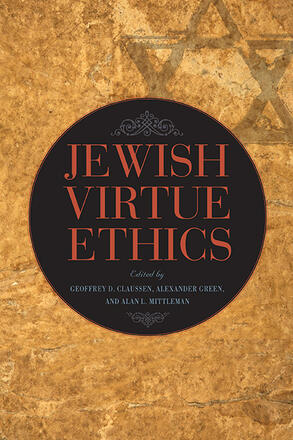
Jewish Virtue Ethics
Alternative formats available from:
Explores the diversity of Jewish approaches to character and virtue, from the Bible to the present day.
Description
What is good character? What are the traits of a good person? How should virtues be cultivated? How should vices be avoided? The history of Jewish literature is filled with reflection on questions of character and virtue such as these, reflecting a wide range of contexts and influences. Beginning with the Bible and culminating with twenty-first-century feminism and environmentalism, Jewish Virtue Ethics explores thirty-five influential Jewish approaches to character and virtue.
Virtue ethics has been a burgeoning field of moral inquiry among academic philosophers in the postwar period. Although Jewish ethics has also flourished as an academic (and practical) field, attention to the role of virtue in Jewish thought has been underdeveloped. This volume seeks to illuminate its centrality not only for readers primarily interested in Jewish ethics but also for readers who take other approaches to virtue ethics, including within the Western virtue ethics tradition. The original essays written for this volume provide valuable sources for philosophical reflection.
Geoffrey D. Claussen is Associate Professor of Religious Studies, Lori and Eric Sklut Scholar in Jewish Studies, and Chair of the Department of Religious Studies at Elon University. He is the author of Sharing the Burden: Rabbi Simhah Zissel Ziv and the Path of Musar, also published by SUNY Press. Alexander Green is Visiting Associate Professor in the Department of Jewish Thought at the University at Buffalo, State University of New York. He is the author of Power and Progress: Joseph Ibn Kaspi and the Meaning of History, also published by SUNY Press. Alan L. Mittleman is the Aaron Rabinowitz and Simon H. Rifkind Professor of Jewish Philosophy at the Jewish Theological Seminary. He is the author of Does Judaism Condone Violence? Holiness and Ethics in the Jewish Tradition, winner of the National Jewish Book Award for Modern Jewish Thought and Experience.
Reviews
"Written by top scholars, these essays are united in answering four questions: In what way are virtues important to the thinker or work? Which virtues are emphasized? How does this thinker or work imagine that virtues are best cultivated? What impact does this conception of virtue have on the thinker's or documents' interpretation of Judaism? This accessible collection has the added value of revealing larger themes and considerations displayed in the long history of Jewish thinking about virtue." — CHOICE
"This is a fantastic book. Its contribution to the field of virtue ethics is significant because it provides a sweep of Judaic treatments of the topic, and its contribution to the field of Jewish ethics will be invaluable due to the relative dearth of material on virtue ethics thus far. It will be a cherished and, I hope, widely used resource." — Jonathan K. Crane, coeditor of The Oxford Handbook of Jewish Ethics and Morality